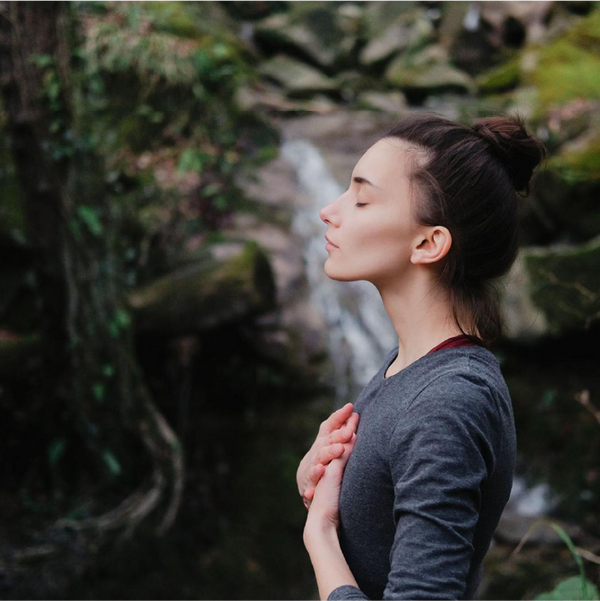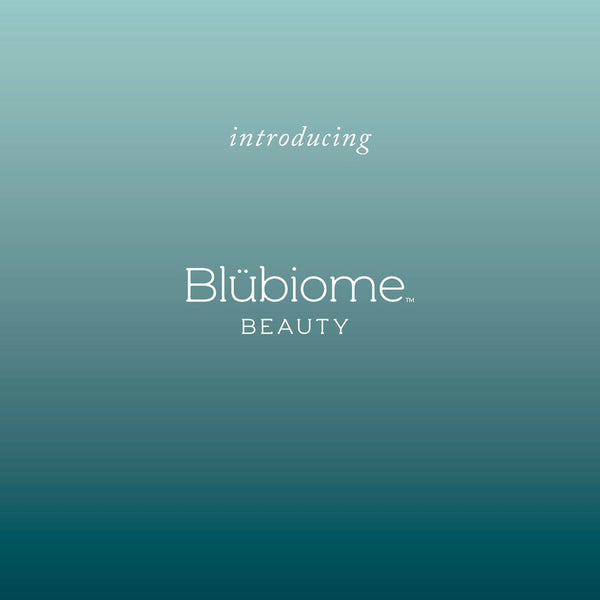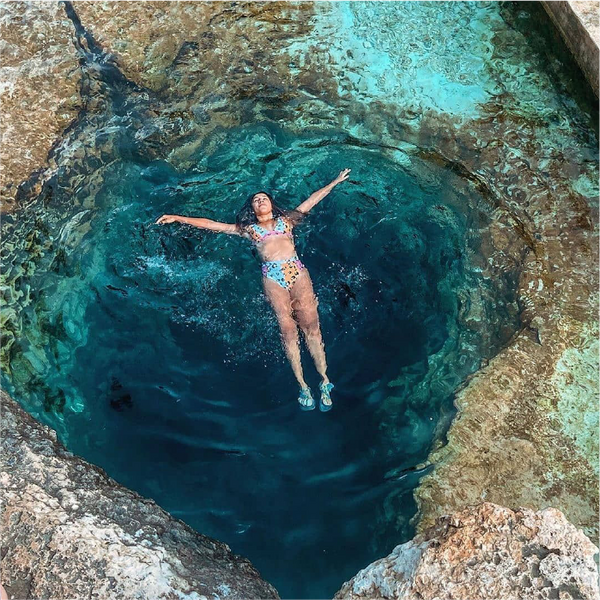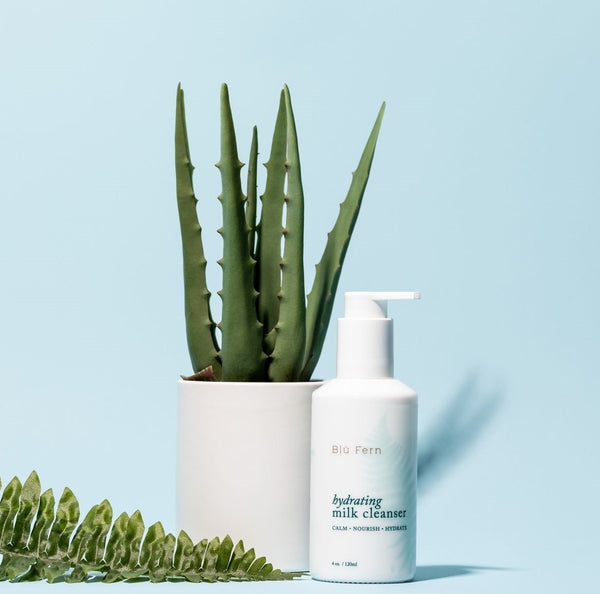We've all heard by now that lifestyle has a major impact on our health and that of our skin. But what does that mean exactly? In this article, we will delve into the two most essential lifestyle elements that have the biggest impact on how we age; The food we eat and the quality of our sleep.
Skincare and Sleep
We’ve all been told to make sure and get our “beauty sleep,” but how does sleep affect our skin’s health? For one, getting at least 7-9 hours of sleep a night is one of those things that you hear a lot, but that’s not the whole story.
The Stages of Sleep
While we sleep, we go through stages of wakefulness and sleep as the night goes on. Sleep is divided this way:
-
Awake
Awake is when you’re experience levels of wakefulness from getting up to go to the bathroom to wake up from a dream or from tossing and turning.
-
Light
Light sleep is just below being awake. It’s often a shallow sleep in which you can still hear noises, there’s tossing and turning, and it’s not restful. In this stage, your brain is dipping its toes in the Sleep Pool but hasn’t made the leap.
This type of sleep typically takes up 50-60% of your sleep cycles a night.
-
Deep
Deep sleep is about your body getting into a restful state. In deep sleep, our breathing slows, our heart regulates, and we are less responsive to noises and outside stimuli. This is the part of sleep where your body is hard at work secreting growth hormone and working on cellular rebuilding and repair. This stage of sleep also helps strengthen your immune system.
Deep sleep typically takes up about 10 - 25% of your sleep a night. -
REM
Rapid Eye Movement, or REM sleep, is what we often see on TV or in movies: our hero lays in bed, dreaming, and to show this, we see a close-up on their face, their eyes moving back and forth beneath closed eyelids.
REM is the period of sleep when your brain is the most active. This is the stage where we experience our dreams, our breathing becomes more irregular, and our heart rate increases. This is the stage of sleep where our brains are also helping get rid of things you no longer need, like certain emotions or memories, but it’s also allowing you to hold onto things by converting short-term into long-term memories.
REM typically makes up 20 - 25% of your sleep each night.
If you’re waking up feeling tired, you may want to look into sleep trackers to see how your sleep cycle stacks up. Fitness trackers often have sleep tracking built-in, and there are several free apps for your smartphone that can help you track your sleep and provide you with recommendations for improving your sleep each night.
If you’re still not feeling like you’re getting restful sleep, you may want to contact your doctor to see if you have sleep apnea or a sleep disorder that may require treatment.
How Sleep Benefits our Skin
There are several important ways that good, consistent sleep helps our skin stay healthy, young, and glowing. When you get good sleep, you’ll experience the following skin care benefits:
-
Fewer wrinkles
As you sleep, blood flow increases, and the skin can rebuild collagen, which helps repair UV damage, age spots, and reduces the appearance of wrinkles and fine lines.
-
Reduction in eye puffiness
While we are all aware that a lack of sleep can cause dark circles under our eyes, getting a good amount of sleep can reduce puffiness and dark circles and increase the skin’s brightness around your eyes.
Try to sleep with your head slightly elevated to prevent the accumulation of fluid under your eyes, leading to puffiness in the morning.
-
A healthy glow
When you sleep, your body increases blood flow which means healthier skin! Our body works to repair itself in sleep, and in deep sleep, most cellular repair takes place. Lose out on deep sleep, and you deprive your body of the time it needs to health itself. Get good sleep, and you’ll start to see your skin glowing and healthy.
The bottom line on sleep? Get enough good sleep, and your body has time to rest, rejuvenate, and repair.
Diet and Skincare
If you’ve ever struggled with acne, you’ve been told about the connections between skincare and diet and, as we get older, that doesn’t change. So, let’s talk about the types of food to avoid as well as the types of food that can help rejuvenate and protect your skin.
Foods to Avoid
We know a lot of things that we should avoid preventing things like acne and swelling, but there may be some foods you love that you didn’t realize were secretly undermining your skincare routine.
-
Refined grains and sugars
This is an easy one, and problem something you’ve heard before. If only carbs and sugar helped us, but alas, they do not. Refined sugars and grains can mess with the collagen in your skin, causing it to wrinkle faster.
-
Dairy products
Thankfully, we live in a time where dairy alternatives are improving every day, but milk, cheese, and butter made from animal milk, especially cow’s milk, have been shown to aggravate or cause acne.
Do you need to cut dairy out completely? No. While many people are beginning to avoid dairy products for environmental and dietary reasons, there are still many vitamins and benefits to dairy products. However, cutting down on the amount of dairy you ingest and replacing it with food high in fiber and omega-3 fatty acids can help.
-
Whey
You may be using whey protein powder as part of your exercise and health regimens, but studies show that whey protein can lead to a spike in insulin, increasing oil production and insulin.
-
Alcohol
Alcohol can affect your liver which is the organ that helps remove toxins through your body. If the toxins aren’t properly broken down, they’re free to roam about, causing damage as they go. It also dehydrates you and affects your sleep which hurts your skin’s ability to repair and protect itself.
-
Charred meats
Not the thing you want to hear as we head into BBQ season, but the American Academy of Dermatology has stated that charred contain “pro-inflammatory hydrocarbons" which can damage the collagen in your skin.
-
Spicy foods
Spicy food lovers beware! Spicy foods aggravate rosacea, especially during menopause when your blood vessels are more reactive.
-
Caffeine
We all know we should reduce our caffeine intake, but here’s a good reason to finally take that step: caffeine is a diuretic which means it increases the amount of urine you create (re how much you pee) dehydrating.
While you don’t have to give up caffeine altogether, it’s good to make sure you’re tempering it with water, so you’re replenishing the hydration that the caffeine is taking away.
 Skip to content
Skip to content




